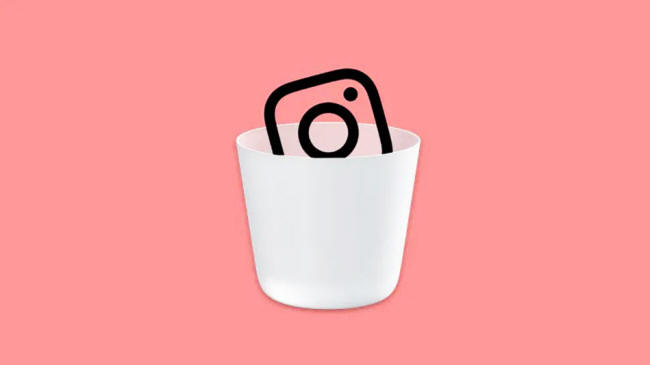|
by Adam Clark Estes
The company has been violating your privacy and secretly giving away your data for years. Last year, in particular, was a bad one for the company.
Still, it's easy to forget, when thumbing through its endless stream of glamorous images, how one beloved app is a member of the Facebook family:
And with so many people
declaring that 'it's time to delete Facebook,' you might be
wondering when it will be time to delete Instagram, too.
You do this with photo posts or Stories, a popular feature that Instagram stole from Snapchat.
You can also see what celebrities are up to, since all the cool celebrities have fun Instagram accounts that give you a glimpse into their exciting lives. You can even get to know a new type of celebrity called an Influencer by following them and liking their pics.
Sometimes, these people
get paid to do posts about products, which can get them in trouble
with the Federal Trade Commission (FTC).
The social network turns 15 today, and plenty of people think that Facebook has evolved into an evil behemoth that,
Most people are well familiar with Facebook's role in spreading misinformation and failing to fix the problem.
Last week, we also learned that the company was paying teens to download an app that gave Facebook unlimited access to their phones. While a privacy violation of this scale is hardly surprising for Facebook, the timing was a little bit awkward.
News of Facebook's latest scandal arrived just a couple days after The New York Times reported that Mark Zuckerberg and his minions would be integrating messaging features across,
And Instagram...?!
That's the Facebook app
my friends haven't fallen out of love with. Does this mean that
Instagram is about to be awful and invasive as well?
Not long after Facebook announced in 2015 that it would start serving ads on Instagram, the company bragged about how advertisers could simply check a box to run their campaigns on both platforms.
This is just one indication of how tightly Instagram is bound to the Facebook platform. In fact, if you want to buy an ad on Instagram, you use the Facebook ad tool. Those ads can also use both your Facebook and your Instagram data to target ads.
So if you like Major
League Baseball on Facebook, you shouldn't be surprised when you see
ads for Mets tickets on Instagram.
In effect, the social network spies on you to serve you more targeted ads.
Its methods have become so creepy, elusive, and effective that a conspiracy theory emerged:
The theory gained so much momentum that Facebook released a statement denying that it used phone microphones for ads or News Feed Stories.
Not long after this
statement, a group of researchers conducted a study and found no
evidence that Facebook used microphones to eavesdrop, but the
reality of how the company does ad targeting is perhaps more
concerning.
Facebook also lets advertisers upload databases of people that it wants to reach, and Facebook will show those people the ads. Facebook even uses location data to watch what you do, where you go, and target ads accordingly.
Those are methods we know about, but all of the data Facebook collects gets mashed together and optimized by an unknown number of algorithms.
As Antonio García
Martínez, the former Facebook engineer who helped build this ad
targeting technology explained in a Wired column, Facebook's secret
algorithms are so good at figuring out what you're interested in
that the company doesn't need to record your conversations.
It's a 'free' service. In exchange for unknown quantities of your data and your attention to ads, you get an elegant app for sharing photos and keeping in touch with friends.
For some, this is a 'good
deal'...
It's not exactly clear which new features bothered the Instagram co-founders, but it's worth remembering that Instagram was originally just an ultra basic feed of photos with no messaging, no location tracking, and most impressively, no ads...
Following Krieger and Systrom's departure, Zuckerberg promptly installed his longtime lieutenant Adam Mosseri to run Instagram.
Mosseri is best known for
masterminding
Facebook's News Feed which is also,
arguably, the site's most hated and destructive feature.
In the long term, it could mean that all of the same tech that makes Facebook feel invasive will make Instagram feel gross, too.
Furthermore, hyper-targeted ads are only part of the problem when it comes to Facebook's history of rampant data collection. The super scary thing about this is that Facebook has developed an awful reputation for "protecting its users' data"... (sic)
Facebook admitted that
the
Cambridge Analytica scandal alone
led to the data of up to 87 million users being improperly shared.
It's chilling to wonder how bad the next security breach could be.
You might also be someone who loves Instagram, doesn't mind the data collection, and feels comfortable about informing Facebook of your every whim and action. It's unclear what Facebook will do with Instagram in the future.
It appears that Zuckerberg's vision is to make Instagram look and work more like Facebook by making the apps together work more seamlessly.
After all, that's how the
ads work already.
That whole debacle, now frighteningly depicted in dueling documentaries on Netflix and Hulu, bears some resemblance to the Facebook's 2016 election catastrophe.
Of course, suggesting
that Instagram will be the next front in the war on fake news
would be pure 'speculation'...
You don't have to delete Instagram for that reason.
There's no other photo-sharing app that's as popular or as culturally relevant as Instagram. It is, as I've said, simple and fun. It is also owned by Facebook and will continue to be controlled by Mark Zuckerberg for the foreseeable future.
We can only hope the
billionaire won't ruin this fun thing, too...
|


